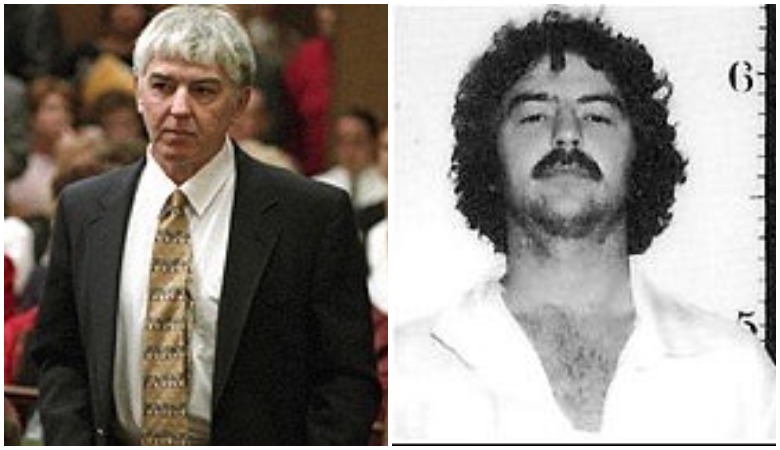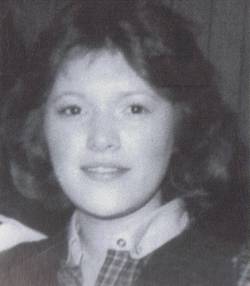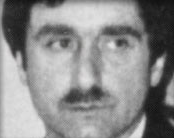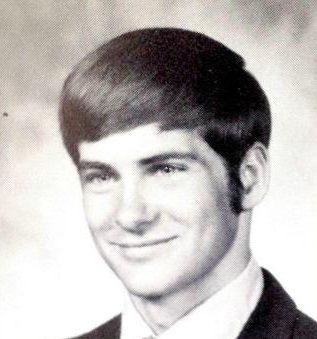
Ron Williamson and Dennis Fritz were both arrested in 1987 for the rape, sodomy, and strangulation of 21-year-old Debbie Carter in 1982, in a crime that shocked the small Oklahoman town where it had occurred. Their story was eventually adapted into a non-fiction bestseller by John Grisham, which has since been developed into The Innocent Man, a six-part docu-series on Netflix.
What followed Williamson and Fritz’s arrest was a shocking murder mystery that spanned decades, in which Williamson and Fritz vehemently maintained their innocence. After over a decade of appeals, Williamson and Fritz were eventually exonerated and cleared of any wrongdoing, after it was found that DNA evidence overruled any possibility of their being at the scene of the crime. Glen Gore was subsequently arrested and charged with the rape and murder of Carter. He was sentenced to life in prison.
Carter was raped, sodomized with a ketchup bottle, and strangled to death in her apartment in 1982. Williamson was a failed baseball player living at home with his parents at the time of her murder. Here’s what you need to know:
1. Williamson Was a Native Oklahoman Known For His Failed Baseball Aspirations Prior to the Murder of Debbie Carter
Per Grisham’s book, Williamson was born on February 3, 1953. He was the youngest child of Juanita and Roy Williamson, with two older sisters named Renee and Annette. Roy was a door-to-door salesman and Juanita worked in some capacity for the local hospital.
Prior to the murder case that would define and consume his life, Williamson was largely known for his brief but impactful baseball career. As the best baseball prospect ever to come out of Ada, Oklahoma, Williamson had high aspirations for a career in Major League Baseball. Those aspirations were initially achieved, then lost. Williamson was drafted in the second round of the MLB draft in 1971 to the Oakland A’s as the 41st player of over 800, but a series of fateful turns made it so that he never made it out of the minor leagues.
Williamson moved back home to Ada after his failed baseball career, and began to increasingly show signs of alcoholism and depression. His bipolar disorder diagnosis wouldn’t be fully recognized for decades.
Williamson was briefly married from 1973-1976 to his local sweetheart, Patty O’Brien. He never married again, and never had children.
2. Williamson Was Arrested in 1987 & Charged With Carter’s Rape & Murder; He Maintained His Innocence Throughout Several Decades

Debbie Carter
Williamson was serving time in jail at the time of Carter’s murder. Grisham writes that Robert Gene Deatherage, an Ada local, was sharing a cell with Williamson at one point. Little is known about why this happened, but after leaving his shared cell with Williamson Deatherage suggested to Gary Rogers, the lead investigator in the case, that they look into Williamson as a prime suspect.
In May 1987, 37-year-old Dennis Fritz and 34-year-old Ronald Keith Williamson were arrested and charged with first-degree murder, first-degree rape, and rape by instrumentation, per an archived article from The Daily Oklahoman. The charge was delayed five years because of incorrect analysis of fingerprints at the scene, per The Innocence Project.
Fritz and Williamson both denied ever having been in Carter’s apartment, or even knowing her. By July, both Fritz and Williamson sought to have rape charges against them dismissed, citing the statute of limitations, per The Oklahoman. By that point, though, Oklahoma State Bureau of Investigation said that “hair found in the victim’s home and on the body were…consistent with those of Fritz and Williamson.”

Dennis Fritz at the time of his arrest.
Ultimately, Fritz and Williamson both went to court as a result of information given to investigators by informants, per The Innocence Project. For Fritz, an inmate who was paired with Fritz said that Fritz had confessed to the murder; this alleged confession came a day before prosecutors were going to have to release him. As for Williamson, an informant claimed that Williamson had told her he was going to hurt her the way he hurt Carter; additionally, police said Williamson had spoken to them about having a dream of committing the crime.
During his trial, The New York Times notes that Williamson had not been taking his psychiatric prescription for months, and that he had several angry outbursts where he shouted at the prosecution witnesses. An archived article from The Oklahoman in 1988 even notes that Williamson yelled at Fritz and called him a snitch at one point.
Williamson was sent to death row. Fritz received life in prison.
3. Williamson Was Exonerated in 1999; He Died in 2004 of Cirrhosis of the Liver

Ron Williamson’s yearbook photo.
After serving 11 years of his life sentence (and coming within five days of an execution, at one point), Williamson and Fritz were both released and exonerated of any wrongdoing in the Carter murder in April, 1999.
To The Daily Oklahoman in 1999, both Fritz and Williamson shared how they felt about their newfound freedom. Fritz suggested that he might go into the legal profession after spending so much time working on his own case, and Williamson said that he wasn’t bitter about what had happened. “I got to see the same town I grew up in, who initially convicted me, exonerate me,” he said. He further noted that the first thing the pair was going to do was go to Disney World, “then we’re going on an ocean cruise vacation and let our hair down.”
Shortly after, Williamson and Fritz sued the Pontotoc County district attorney and settled for an undisclosed amount. Williamson also notably got a private tour of Yankee Stadium, of which he said to The New York Times, “just got a taste of how much fun they were having up here.” However, Williamson didn’t spend much time as a free man: in 2004 Williamson died of cirrhosis of the liver, spending his last days in an Oklahoma nursing home. He was 51 years old.
4. Williamson’s Death Was the Original Inspiration for John Grisham’s Book
In a speech at the University of Virginia School of Law in 2013, Grisham shared that he first became interested in what would become the topic of the only non-fiction book he would ever write after flipping through the New York Times obituary section and coming across Williamson’s obituary.
Grisham noted how exceptionally interesting the first paragraph of the obituary for Williamson: “Ronald Keith Williamson, who left his small town in Oklahoma as a high school baseball star with hopes of a major league career but was later sent to death row and came within five days of execution for a murder he did not commit, died on Saturday at a nursing home near Tulsa. He was 51.”
Grisham said, “I read the whole obituary, and when I got finished with it, I immediately knew it had the makings of a bigger story.” Grisham next called Williamson’s sister and ironed out a “deal” to write Williamson’s story. Williamson was, in essence, the original “Innocent Man”, Grisham explained.
5. Fritz & Williamson Both Reached Out to Carter’s Mother, Peggy Sanders, After Their Release From Prison
In May, 2008, just under a decade after Fritz and Williamson were exonerated, Peggy Sanders was reunited with the Williamson family (Williamson himself was dead at the time), Grisham, and Fritz himself, in the name of a benefit gala for the Innocent Project.
The New York Times wrote an article about a moment at the gala where Fritz, shockingly, asked Sanders to dance, and she accepted. Sanders told The New York Times that she had forgiven them both a long time ago, saying, “I had to do it for my daughter. They had become victims of this, too. People still don’t believe they’re innocent. I was just at a funeral, and a woman come up to me and said, ‘I know them two done it.’ I said, ‘No, they didn’t.’ ”
Though Williamson himself had died four years earlier, Sanders told The New York Times that he had called her upon his released. “He said, ‘This is Ron Williamson; I did not kill your daughter,’'” Sanders explained. “I said, ‘I know, hon.’ ”
READ NEXT: Glen Gore: 5 Fast Facts You Need to Know